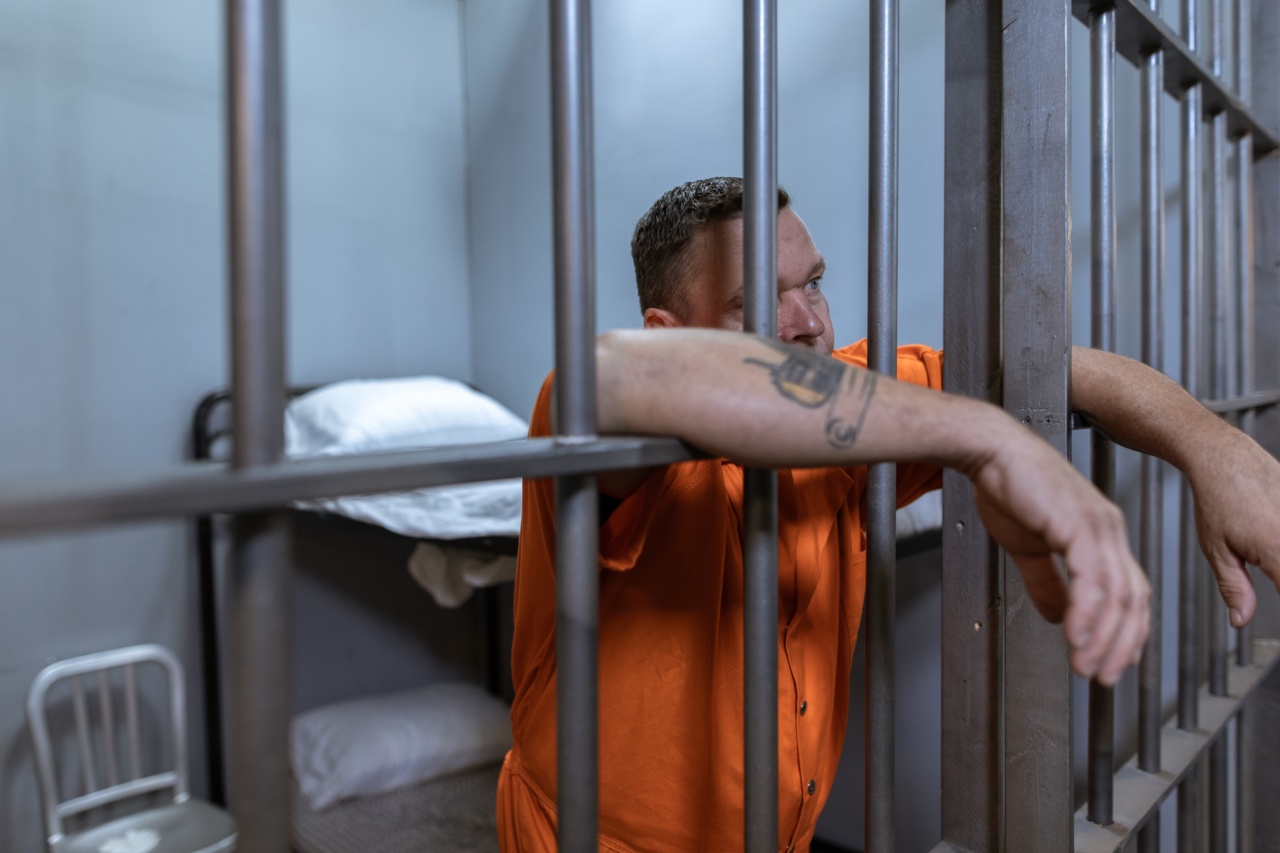Being locked up in a prison can be a life-altering experience. With a lack of freedom, limited communication with loved ones, and unbearable living conditions, it’s no wonder why so many people fight to avoid going to prison.
For those who have been incarcerated, each day is a battle to survive in a harsh and unforgiving environment. In this article, we’ll dive into what it’s like to be locked up and how it impacts the lives of those who experience it.
The Day-to-Day Life in Prison
For the men and women who are locked up, each day is filled with uncertainty and fear. They wake up in a small, cramped cell with little room to move around.
The cell is usually shared with one or more inmates, making it difficult to find any sense of privacy. Meals are served at specific times, with little variation in the menu options. The food is usually bland and lacks proper nutrition, which leads to health problems over time.
Prisoners are required to follow strict schedules that dictate when they can go to the bathroom, take a shower, and exercise.
They are also required to attend daily roll calls, with failure to attend resulting in severe punishments such as solitary confinement. The rest of the day is spent either in the cell or in communal areas with limited access to recreational activities.
The Psychological Impact of Being Locked Up
Being locked up can take a severe toll on the mental health of prisoners. They are forced to live in constant fear of violence, sexual abuse, and death. Many prisoners experience anxiety, depression, and PTSD as a result of their experiences in prison.
The lack of freedom and control over their lives often leads to feelings of hopelessness and helplessness.
Another significant mental health concern in prisons is the issue of suicide. According to the World Health Organization, suicide rates among prisoners are much higher than in the general population.
Factors such as overcrowding, lack of mental health services, and isolation contribute to this alarming trend. Furthermore, prisoners with pre-existing mental health conditions are more likely to struggle with their mental health while incarcerated.
The Physical Impact of Being Locked Up
The physical toll of being locked up can be just as damaging as the psychological toll. Prisoners often experience poor living conditions, with limited access to proper medical care and nutrition.
Inmates are at a higher risk of developing chronic health conditions such as heart disease and diabetes due to poor diet and lack of exercise. Furthermore, the spread of communicable diseases such as tuberculosis and HIV is higher among prisoners due to overcrowding and poor sanitation.
The Importance of Rehabilitation
While prison is designed as a form of punishment for criminal behavior, it is important to remember that prisoners are still human beings. As such, it is crucial to provide them with opportunities to rehabilitate and reintegrate into society.
Research has shown that providing educational and vocational programs in prison can significantly reduce recidivism rates. Additionally, providing mental health services and substance abuse treatment can help prisoners address the underlying issues that led to their criminal behavior in the first place.
The Consequences of Recidivism
Recidivism refers to the reoffending of individuals who have been released from prison.
The high rates of recidivism in the United States (over two-thirds of released prisoners are rearrested within three years) highlight the need for effective rehabilitation programs in prisons. Without proper support and guidance upon release, former prisoners are at a higher risk of returning to a life of crime and ending up back in prison.
The Need for Prison Reform
Given the harsh living conditions and negative impacts on mental and physical health, there is a growing need for prison reform in the United States.
Some proposed solutions include reducing overcrowding, improving access to healthcare and mental health services, and providing more opportunities for rehabilitation and vocational training. Additionally, many advocates for prison reform are pushing for changes to sentencing laws, with a focus on eliminating mandatory minimum sentences, which disproportionately affect communities of color.
Conclusion
Being locked up in a prison is a life-altering experience that can have severe psychological and physical impacts on those who experience it.
While prisons are designed to be a form of punishment for criminal behavior, it is essential to ensure that prisoners are still treated with basic human rights and given the opportunity to rehabilitate. The high rates of recidivism in the United States highlight the need for effective programs and resources in prisons to reduce crime and promote successful reintegration back into society.






























